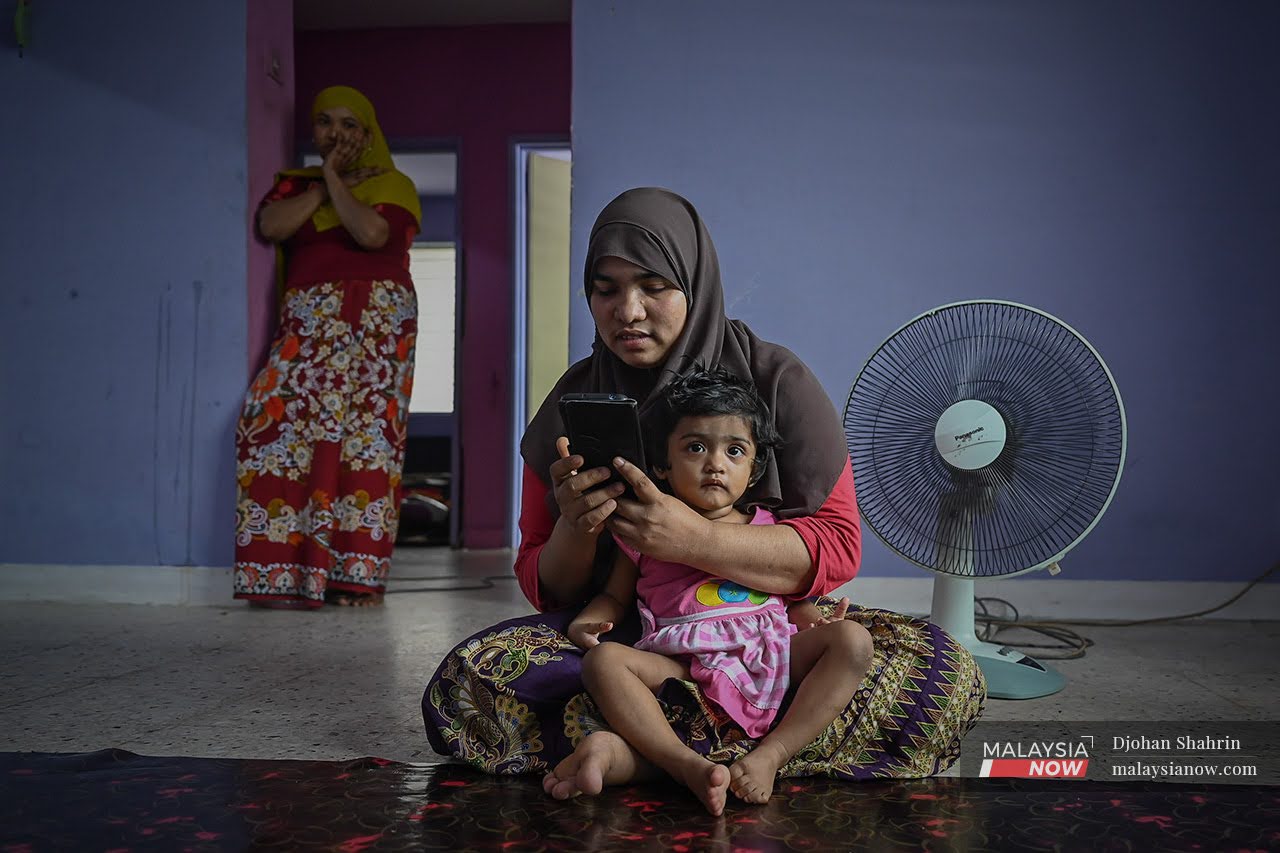Alone with 2 children, Rohingya woman struggles to get by
Mumtaz Sultan Ahmad left her home in Myanmar hoping for a better life but is now dependent on the goodwill of others.
Just In
When she was 14, Mumtaz Sultan Ahmad left her home town in Arakan, Myanmar, filled with hope for a fresh start.
As a Rohingya woman in Myanmar, her life was filled with hardship and distress.
Her family members had been among those persecuted by the Myanmar junta, their home burnt to the ground.
Together with her sister and younger brother, Mumtaz decided to escape. They sought the help of a human trafficking agent who smuggled them by boat to Thailand. When they arrived, they and 30 other Rohingya had to walk the rest of the way to the Malaysian border.
In Malaysia, she was separated from her siblings. The agent sent her to Johor Bahru by bus, alone.
A fellow Rohingya found her there, crying by herself, and took her to live with his family.
“After a few months, he said he wanted to marry me so we got married,” Mumtaz said.
Together, they moved to Melaka and then to Kuantan in Pahang in search of work before finally settling down in Selayang, Kuala Lumpur.
Their eldest child, who was born in Kuantan, is now six years old.

When their second child was born a year and a half ago, they began feeling the pinch more than ever. Struggling to find work in the midst of the pandemic, tensions began riding high.
Just before their second child was born, Mumtaz had an argument with her in-laws.
“My sister-in-law started accusing me of many things,” she said. “Her Bangladeshi husband, who acquired a UNHCR card, was found to be a fraud by the agency. So she accused me.
“We had a big fight which ended with my husband divorcing me. Soon afterwards, he married an Indonesian woman whom he met while he was working in Alor Setar, Kedah.”
Once again, Mumtaz found herself alone.
She managed to keep in touch with her sister, who like her is struggling to get by. However, she has no idea where her brother is anymore.
She and her two children were eventually evicted but they managed to find accommodation with another single Rohingya named Kurbanbi Abdul Malik. Together, they rent a small, low-cost flat in Selayang.

Kurbanbi, who earns RM1,000 a month working as a cleaner at the Selayang night market, brings home the lion’s share of money. Mumtaz, on the other hand, is no longer in good health and cannot work. She spends her days taking care of her children and Kurbanbi’s while her friend is out at work.
“We haven’t had a job for a long time,” she said. “My children are growing up without an education. I can only teach them religious recitals as I myself never went to school.”
She, Kurbanbi and the children live from day to day, dependent on the charity of others who donate items like rice, vegetables, milk and diapers. Whenever the children fall sick, they buy medication that has been subsidised at a clinic supported by the Malaysian Medical Relief Society.
For now, they can get by but they know that the future is uncertain, even without the threat of war and violence which they left behind in Myanmar.
When she left home, Mumtaz was filled with hope about the future. Now, her ambitions are simple.
“I just want to see my children going to school and contributing to society,” she said.
Subscribe to our newsletter
To be updated with all the latest news and analyses daily.



